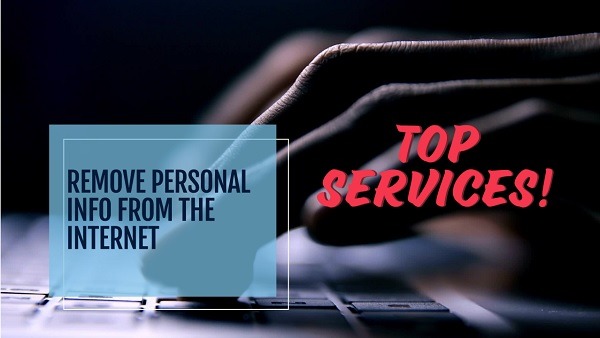Tips for Preventing Negative Online Content in the Future

We’ve all seen it happen. A negative comment, review, or news article can appear online, causing a major dent in your reputation. Whether it’s a bad review, a false rumor, or something you regret posting, negative online content can follow you for years. The internet is full of information, and once something is out there, it can be hard to take back. That’s why it’s important to not just react when negative content appears, but to take proactive steps to prevent it from happening in the first place. Let’s look at some tips for preventing negative online content in the future.
Why Negative Online Content Can Be Harmful
Before we dive into how to prevent negative content, it’s important to understand why it matters. According to a study by the University of Pennsylvania, nearly 80% of consumers trust online reviews as much as personal recommendations. This means that negative content, whether it’s a bad review or a damaging news article, can influence how people see you or your business. It can:
- Harm your personal reputation
- Hurt your career or job prospects
- Lower sales or damage business relationships
- Lead to unwanted attention or harassment
With that in mind, let’s explore practical steps to prevent negative content from appearing about you online.
Tip 1: Think Before You Post
One of the easiest ways to prevent negative content is to think carefully before posting anything online. Whether it’s a tweet, a blog post, or a comment on social media, everything you share can be permanent, even if you delete it later.
Social media platforms, forums, and websites often have long memories, and a simple mistake can lead to unwanted consequences. Here are a few things to keep in mind before posting:
- Consider your audience: Always remember that what you post could be seen by a much larger group of people than you intend. Think about how your words might be interpreted.
- Check the tone: Avoid posting when you’re emotional or upset. It’s easy to say something you’ll regret later.
- Ask yourself, “Would I want this seen by a potential employer?” If the answer is no, reconsider posting it.
By being thoughtful and cautious about what you post, you can avoid creating content that might come back to haunt you.
Tip 2: Set Strong Privacy Settings
One of the best ways to control the content that appears about you online is by setting strong privacy settings on your social media accounts. Most platforms, including Facebook, Instagram, and LinkedIn, allow you to control who can see your posts, photos, and information. Here’s how you can lock things down:
- Facebook: Set your posts to “Friends” or a custom list of people. This ensures only people you know can see what you post.
- Instagram: Switch your account to “Private,” which means only your followers can see your content.
- Twitter: Turn on “Protect your Tweets” to limit access to your posts to only approved followers.
- LinkedIn: Customize your profile settings so only your connections can see your information.
While these settings won’t stop other people from posting about you, they can help you control the content you put out there.
Tip 3: Monitor Your Online Presence Regularly
Another important step to preventing negative content is staying aware of what’s out there about you. A quick Google search can show you what people are saying about you or your business. According to a 2022 survey by BrightLocal, 97% of consumers use the internet to search for local businesses, so monitoring your reputation online is key.
Here’s what you can do:
- Set up Google Alerts: Use Google Alerts to keep track of new content that mentions you or your business. You’ll get an email every time something new is posted with your name or a specific keyword.
- Search your name regularly: Make it a habit to search for your name online and see what comes up. This can help you identify and address any potential issues before they snowball.
- Use reputation management tools: Several online tools can help you track and manage your online reputation. These tools provide a more comprehensive way to monitor your reputation on social media, forums, and review sites.
By monitoring your online presence regularly, you can spot potential issues and take action before they become bigger problems.
Tip 4: Respond to Negative Content Professionally
Even with all the precautions in place, negative content can still appear. When it does, how you respond is crucial. Ignoring negative content might seem like the easy route, but responding thoughtfully can help protect your reputation. Here’s how you can handle it:
- Address the issue calmly: If a review or comment is unfair or inaccurate, respond calmly and professionally. Avoid getting defensive or angry.
- Offer solutions: If the negative content is based on a legitimate complaint, offer a solution. A sincere apology or an offer to fix the issue can turn a negative into a positive.
- Take it offline: If the issue is personal or complex, take the conversation to private messages or emails. This shows you’re willing to resolve the issue without further public conflict.
A quick, thoughtful response can help prevent the situation from escalating and can show others that you handle criticism professionally.
Tip 5: Build Positive Online Content
A proactive way to prevent negative content from having too much impact is to build a strong base of positive content. If you have a website, blog, or social media presence, use it to highlight your accomplishments, positive reviews, or community involvement.
Here are a few strategies:
- Create quality content: Share helpful, informative, or entertaining content that people will find valuable. This could include blog posts, videos, or articles that showcase your expertise.
- Encourage positive reviews: Ask satisfied customers or colleagues to leave positive reviews. More positive reviews will make it harder for negative ones to stand out.
- Engage with your audience: Respond to comments, messages, and mentions to create positive relationships with your followers. Active engagement can also help boost your reputation.
By building a positive online presence, you can push negative content down in search results and make it harder for it to damage your reputation.
Tip 6: Know When to Seek Professional Help
If negative content starts to pile up or if you feel it’s beyond your ability to manage, it might be time to seek professional help. Online reputation management services can help you remove Google search results or suppress negative content. These professionals specialize in dealing with negative content and can help you clean up your online presence. They can assist with:
- Removing harmful content: Reputation management experts can help you get negative articles or content taken down.
- SEO tactics: They can also use search engine optimization (SEO) strategies to push negative content further down in search results, making it less visible.
- Branding: They can help you create and manage positive content that builds your brand and reputation.
Hiring a professional can be a great way to protect your reputation if you’ve encountered persistent negative content.
Tip 7: Educate Yourself and Others
The internet can be tricky, but educating yourself and those around you is one of the best ways to prevent negative content in the future. Stay updated on online privacy laws, social media trends, and best practices for managing your online presence. If you have children or employees, educate them on the importance of protecting their online reputation as well.
Final Thoughts
Preventing negative online content requires ongoing effort, but it’s worth it to protect your reputation and peace of mind. By thinking carefully before posting, using privacy settings, monitoring your online presence, and responding professionally to negative content, you can significantly reduce the risk of harmful online content affecting you in the future.
Taking proactive steps today can help ensure a positive and controlled online presence tomorrow.




